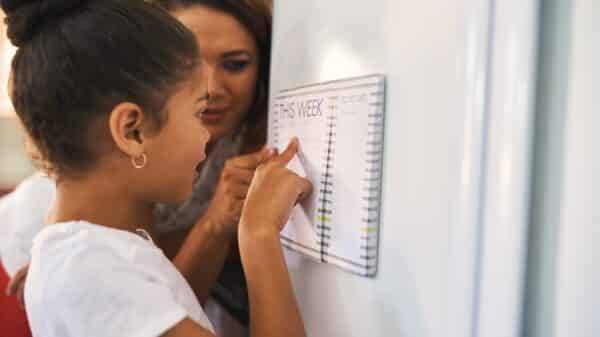Growing up, I was fortunate to have a mother who believed in the power of sleep. Every weekend was a mini-vacation from the fast pace of school and extracurriculars, and her philosophy was crystal clear: adolescents need ample rest. It wasn’t just a relaxation tactic; it was supported by solid science. So, making the most of those lazy summer days, my siblings and I often found ourselves sleeping in until noon without a hint of guilt.
But everything changed when I had the chance to sleep over at my best friend’s house. Suddenly, I was thrust into an entirely different world where early mornings were non-negotiable, even on weekends. Their family held breakfast at a specific hour, and everyone was expected to show up—no exceptions. It felt like stepping into another universe where punctuality and a strong work ethic reigned supreme, and my slumber-loving heart couldn’t help but feel the pinch of those early wake-up calls.
This juxtaposition in parental philosophies has sparked an intriguing conversation online. Creator and comic Dana Joy Seigelstein recently posed a thought-provoking question on TikTok: “Do you come from a sleep supportive family or a non-sleep supportive family?” Her light-hearted yet relatable take quickly struck a chord with folks from all walks of life.
Dana shared, “In my household, if I sleep until noon, I’ll text my mom and she’ll respond with, ‘Sounds like you really needed it.’” How refreshing! Yet she contrasted this with countless stories of friends who faced entirely different narratives. “There are families out there,” she notes, “that would say, ‘Get your f*cking a** up and work,’ if you happened to sleep past 10 AM on a Saturday.” Her video resonated deeply, amassing nearly a million likes and sparking 20,000 comments from people recalling their own family sleep stories.
The sentiments echoed in the comments were overwhelmingly revealing. Many who grew up in non-sleep supportive environments recounted tales of anxiety and pressure. “I had a non-sleep supportive family,” one commenter lamented. “Napping still makes me anxious, and here I am living alone.” Another chimed in with a slightly sarcastic recollection, “Oooooo look who’s finally up. Good morning, or should I say good afternoon?” It was clear: the struggle was real, and for many, that rigid approach to sleep had lasting effects.
Some shared particularly vivid memories that made me chuckle and wince simultaneously. “A nap was literally a crime in my house,” lamented one commenter. “I was always woke up and told to go do something.” Another added, “In my home, sleep implied very lazy.” It seemed that for many, the morning routine was interrupted not by gentle sunlight streaming through the curtains, but by the loud roar of vacuums as early as 8 AM, a tactic that left little room for a peaceful Saturday slumber.
Yet amid these shared struggles, the comments took a warm turn as many reflected positively on their sleep-supportive upbringing. “My mom thinks naps are the answer to everything—she’s spot on!” wrote one proud offspring. Another parent shared, “It’s one of the best things I can give my kids: let them rest.” I can’t help but marvel at how many rose to the occasion by changing the narrative for their own children, securing a healthier outlook on rest. “My mom always said, ‘If you’re tired, sleep. If you’re hungry, eat,’” another user reminisced, showcasing a philosophy that is gentle yet so vital.
As I read through these stories, it became clear that the idea of sleep support isn’t merely about encouraging longer hours in bed, but cultivating an environment where rest is seen as essential, not indulgent. Science backs this up: allowing growing kids to get adequate sleep can directly impact their health, mood, and development. The tide seems to be turning as more parents are recognizing the importance of this nurturing mentality.
Seeing this blend of experiences—both the struggles and the triumphs—reminded me that sleep isn’t just about catching up on the missed hours; it’s about taking care of ourselves and each other. So here’s to all the parents fostering a culture of rest in their homes! In today’s fast-paced world, teaching children how to listen to their bodies and prioritize their personal well-being is one of the best gifts we can give them. And hey, naps? They’re truly amazing!
Image Source: Unsplash



































